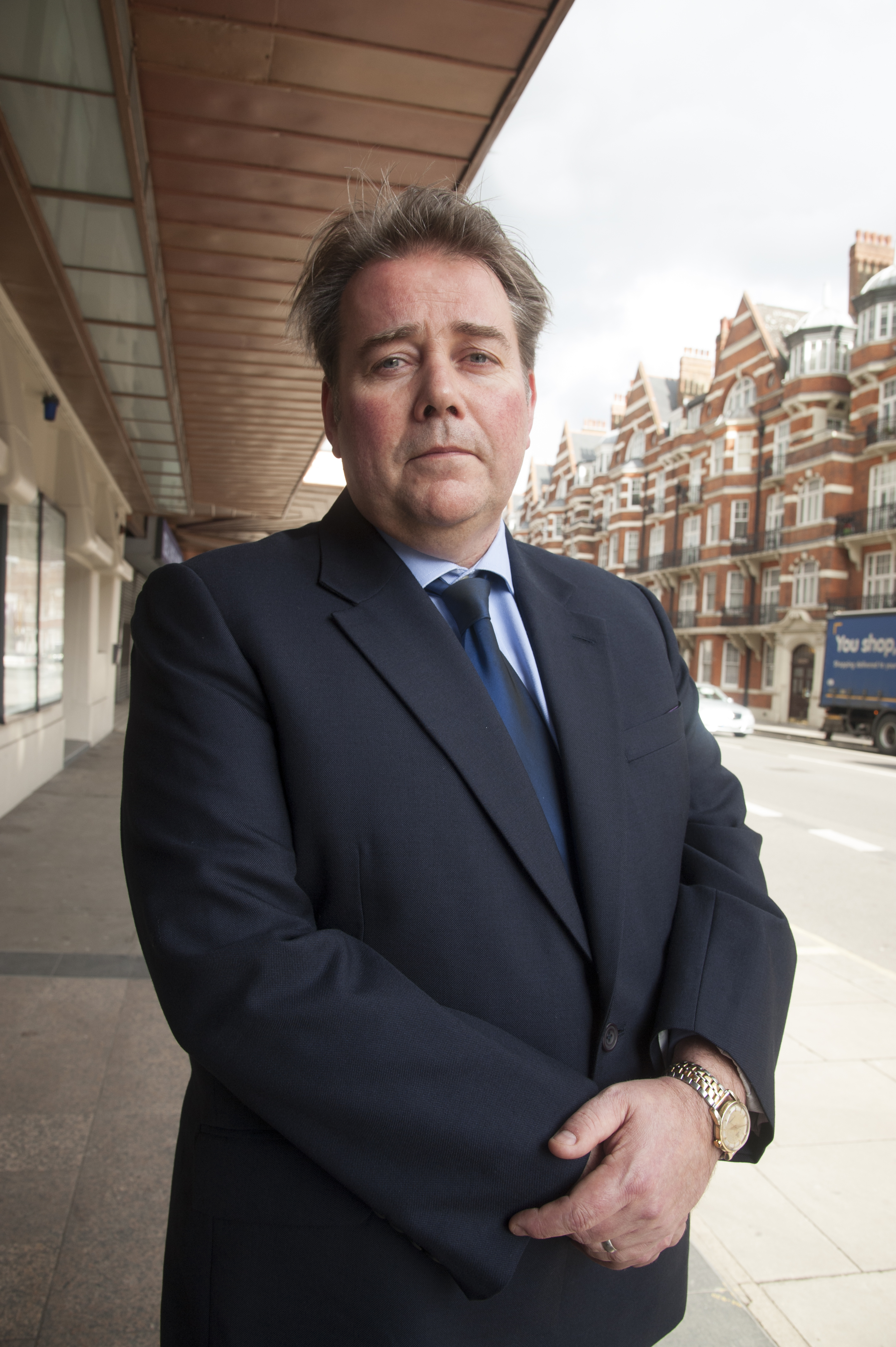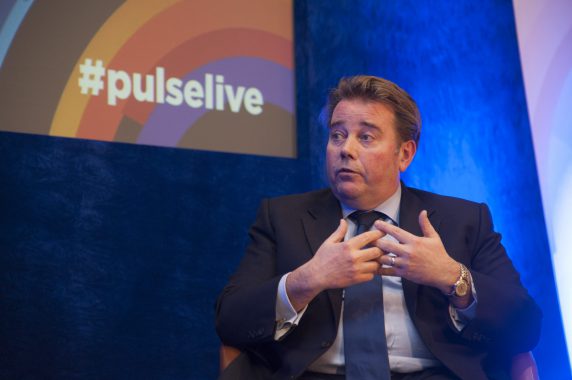Charley Massey Pulse live 2
Nigel Praities: When I talk to GPs and their concerns about their daily working lives, one of the most common issues that comes up is fear over making a mistake and facing complaints. Some are even practising defensive medicine as a result. So is the GMC a part of the problem?
Charlie Massey: I share the concerns of GPs about the fear of mistakes. That’s obviously been thrown into stark contrast by the Bawa-Garba case. I’ve been in this job for 16 months, when I first arrived I was really struck by the fact that, as an organisation using your money as registrants, we spent about 60% of our registrant money pursuing investigations.
Typically, if it gets to the GMC, my feeling is that actually the horse has already bolted. So I want to move the GMC to a place where we spend the bulk of our money, resources and effort supporting doctors to be great doctors.
I want to use the data we’ve got to identify where doctors are maybe more at risk of making mistakes and prevent mistakes. Or where a mistake has happened, how do we ensure it doesn’t end up in the complicated world of a GMC investigation, a process that feels like an attack on doctors’ personal integrity.
There are a lot of misunderstandings about the case
So we’ve called on government to change our legislation to enable us to set the threshold for investigating differently and we’ve introduced our own work around ‘provisional enquiries’, which has prevented 1,000 investigations in the last three years because we’ve been able to triage those at an earlier point.
We’ve also reduced the number of cases, whether it be the single clinical error, by over half over the same timeframe, so I think we are taking action.
A lot of GPs would feel that they’re in a position at the moment where they’re struggling to provide safe care and that’s not due to their practice, it’s due to the system that’s overloaded. What’s a GP meant to do about that position?
Well I completely agree that the level of pressure in the system is something that feels exceptional. We’re not an organisation that is responsible for workforce issues, but I do think we need to be a sharper voice in terms of talking about those system pressures.
I think we have been doing that. We described a state of unease in the medical workforce just over a year ago. We described a crunch point in the medical workforce just before Christmas. We also had very important responsibilities in terms of trainee doctors and we talked about some of the pressures in the training environment as well. That doesn’t of course solve the question about how GPs on the front line with patients coming through their door can ensure they’re providing safe care for those patients.
We set out good medical practice and I don’t think that should flex in relation to system pressures, but we do need to make sure that in our processes we take context into account. But the more fundamental question is what role the GMC can play in speaking truth to power. We’re not part of government and I think we do have a role in speaking out.
Charley Massey Pulse live 3
That brings me neatly to Dr Hadiza Bawa-Garba. Why did you feel you had to go to the High Court and strike her off? What was behind that decision?
Dr Bawa-Garba was found guilty in a criminal court of gross negligence/manslaughter. There are a lot of misunderstandings about the case and all the summary judgements and wording isn’t in the public domain – I think it should be. I think it would help slay a lot of myths out there in terms of the degree to which system pressures were taken into account in the court case, and whether or not reflective notes were taken to account as well. The GMC is a creature of statute, so if a doctor is convicted of a serious crime, we are bound to take that by law to the tribunal, which is what we did in this case.
But what’s the point in having an independent tribunal if you then going to go to the High Court and overturn it?
When the tribunal reached its decision, the independent external legal advice I received said the tribunal erred in law in the way in which they reached their conclusions. I felt I had no choice but to take that to the High Court.
Are you sure you weren’t just scared about what was going to be on the front of the Daily Mail the next day?
I can absolutely assure you that none of my decisions are taken in relation to the Daily Mail. The case of Ellie May Clarke, a five year old girl who died from an asthma attack in Wales a few years ago, has been filling my post bag over recent weeks. The GP was essentially somebody that we felt had shown insight for remediation and who we decided shouldn’t be struck off or suspended and we put a warning on the doctor’s record. We have had many patients saying this is outrageous, and this doctor should be struck off.
I was perplexed that Hunt was perplexed!
In very rare cases there is a wider question of maintaining public confidence. A lot of the anger that’s directed at the GMC in relation to this case relates to whether or not it was right that the doctor should be convicted of gross negligence and manslaughter in the first place. A lot of what’s followed in terms of my actions follow that criminal conviction, and I do think there is an opportunity to think about how the criminal justice system applies in medicine as a result of this case.
We have set up our own review that Dame Clare Marks is leading looking at this across the UK. Jeremy Hunt set up a review looking across all of the healthcare professions. There are real questions about whether or not the criminal justice system is applied in as discriminatory way as it should be in medicine.
But even health secretary Jeremy Hunt tweeted that he was totally perplexed that the GMC acted as they did. What did you think when you saw that tweet?
Well I was perplexed that he was perplexed! Given that he understood the reasons why we had to take this case…
Did you talk to him about your decision?
I’d spoken to him about a month before, with my chair Terence Stevenson. We have met since then, and I think we would agree with him that this case has acted as a bit of a lightning rod. I’m not trying to minimise the anger directed at the GMC – I note that that is there, it is real and we are sorry about the impact it’s had on the profession. But it has been a lightning rod.
So, for a doctor on the front line, it feels that the employer is asking them to work under increasingly difficult circumstances at the limit of their competence and capacity. And that the Government isn’t putting their money where their mouth is in terms of dealing with the workforce shortages. Then it becomes seen as if I, as a doctor, make a simple everyday mistake, the professional regulators are going to come in and take my licence away – even though I would say it’s not the case.

Charley Massey Head shot
Do you regret anything about the way the GMC has handled this case?
We’ve had a lot of reflections over the last few weeks. One of the areas that causes me most anxiety is doctors talking about where it leaves them in terms of their own reflection. I believe that being reflective is a really important part of medical professionalism and although there have been lots of misunderstandings about the use of the doctor’s notes, here is this culture of fear. We clarified that we will never ask a doctor or third party for their reflective notes as part of our processes. But at the moment everything in the criminal process is disclosed.
So we said to Government that we think reflective notes should be legally protected in those court cases. I think that would be a very symbolic action from Government to demonstrate that people can reflect without fear that it might be used against them.
We also have been reflecting about how we could have anticipated more of the misunderstandings about the case that emerged and prepared the ground more effectively in terms of the role of reflective notes, system pressures, etc. I don’t think we were quick enough to then deal with those myths when they arose.
The other piece of learning for me is that we’re thinking about how we address some of the system issues I’ve been having a lot of conversations about how we could bring and build more human factor approaches into the investigative process, which would focus a lot on what might be the systemic issues that might drive mistakes. It is also an area where we could deploy expert witness in human factors, and where we could work with responsible officers in terms of how they handle complaints locally. So, we’ve been doing a lot of reflecting over recent weeks.
Part two of this interview will feature later this week

















